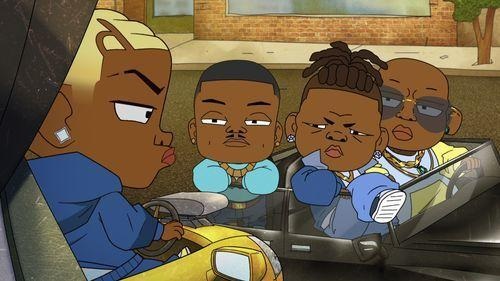A scene from the “Good Times” reboot shows a confrontation between baby characters, which leads to a drive-by shooting. — NETFLIX
- by O.J. Spivey, Philadelphia Tribune Correspondent
Representatives from two Black advocacy groups provided some insight on the new Good Times reboot that premiered last week. The cartoon, which airs on Netflix, has received mostly negative critiques from Black viewers.
Kyle Bowser, senior vice president of the NAACP’s Hollywood, California bureau provided some insight via short interview and his post on the organization’s website. There is no intention by the NAACP to boycott.
While the original series which aired for 1974 through 1979, covered topics and situations commiserate with the urban issues in the decade, the reboot, according to Netflix’s blog site Tudum, explores topics such as elections, first menstrual cycles, coded bias and technology.
“Last week’s social media release of the Good Times trailer provoked millions of views and considerable consternation among Black viewers,” Bowser said. “Concerned comments referred to a departure from the heartwarming qualities of the original sitcom and disdain for an overhanded application of anti-social activity assigned to the animated rendition.”
According to Bowser, the NAACP was not invited to any advanced screenings of the program. The organization then contacted creative personnel involved with the project to ask about their vision and execution. The organization was told there was a deliberate effort to “push the envelope” in the storytelling and tonality and was reminded that the mandate of the adult animation genre is to sensationalize and exaggerate realities.
Yvette Nicole Brown, one of the shows voice actors, defended her involvement with the project amongst the public backlash.
From another point of view, Eric Deggans, an NPR television and film critic as well as the media monitoring chair for the National Association of Black Journalists (NABJ), wrote that he didn’t hate the show but thought it missed the mark.
“It was deliberately provocative to make people react due their idea of the original series,” he said. “Other than the first episode, it should have separated itself and called it something else. There were no real values to connect both shows.”
While admitting that the new series was at times interesting and inventive, Deggans believed there was a missed opportunity.
“With no mission, no method, it was not a great or impactful program, What was it trying to accomplish? It just seems like they wanted to provoke an audience that didn’t take the bait,” he said.

